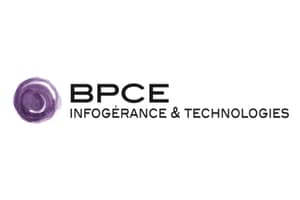BPCE
How to Assess Critical Thinking Skills in Candidates.
Sector : BANKING • Employees : 10,000+

"Thanks to the Watson-Glaser™ III combined with reasoning tests, we were able to select about ten candidates from around forty applicants. A huge time saver for HR managers and managers."
Laure BOGEAT
HR Director at BPCE Infogérance et Technologies.
Laure BOGEAT is HR Director at BPCE Infogérance et Technologies, the IT group of Groupe BPCE, France's 2nd largest banking group. BPCE Infogérance et Technologies (BPCE-IT) has 1200 employees spread over 13 sites in France who provide outsourced support for the main banking networks of the BPCE group and its subsidiaries (Banques Populaires, Caisses d'Epargne, BPCE SA, Crédit Foncier, Crédit coopératif, Banque Palatine, certain NATIXIS activities, etc.). At the heart of new technologies and serving the group's digital transformation, they have major recruitment challenges in a tight market. Laure BOGEAT talks about her use of the Watson-Glaser™ III tool – or Critical Thinking Assessment– in this context.
There were two main reasons why we chose Watson-Glaser™ III. First, our environment is complex, systemic, and rapidly changing. We therefore wanted to ensure a level of analysis, understanding of our challenges, and intellectual flexibility that would allow our new hires to flourish in our structure.
Secondly, as part of our GPEC policy, we have launched a major recruitment plan for retraining people who do not come from the IT world. The Watson-Glaser™ III solution was a natural choice.
A tool that is truly complementary to reasoning tests
The Watson-Glaser™ III sheds light on the candidate's intellectual approach to solving a problem, making a decision, and on their understanding of their environment, their method of interpreting factual data and their ability to synthesize, all of which are relevant elements in our selection criteria.
In the case of candidates undergoing retraining, this solution has proven to be even more essential, as the HR interview cannot be based on experiences directly related to our environment.
"The Critical Thinking assessment provides different and complementary information to the usual reasoning tests. It addresses how the person will or will not grasp implicit information, to what extent they will be able to take a step back and objectively read the information given to them or that they will collect, and whether they develop a rigorous approach in their search for evidence to remove doubts and draw substantiated conclusions. If we assess the intellectual potential alongside tests such as the Next Generation DAT™, we can have an accurate overview of the person's intellectual functioning and crucial information on the dynamics of his or her ways of thinking. ", adds Christelle Cadoret, Psychologist and HR Consultant at Pearson TalentLens, who supported BPCE-IT in this project.
A definite time saving for HR managers and managers
If we focus on the recruitment plan linked to retraining, we were able to select about ten candidates from around forty applicants, thanks to the Watson-Glaser™ III combined with reasoning tests. The time saved is enormous for HR managers and managers. For more traditional recruitment, we select candidates more rigorously for the final shortlist, which allows us to make a faster but above all more objective decision.
"A strength of the Watson-Glaser™ III is also to be able to give development avenues to internal or external candidates, but especially internal candidates when it is part of a more global management training process, for example. These areas of development are also of great value for HR who will be able to better applicants in their mobility, training, integration, etc.” Christelle Cadoret explains.
A positive test experience for both the evaluators and the evaluated
The feedback is very positive, often the results allow us to put feelings into words and to bring objectivity to impressions, whether positive or negative. Opinions are often confirmed, and the debates are richer because they are factual.
This gives additional avenues that can be explored during selection interviews and areas for improvement to be shared with the employee concerned. It is a real decision-making tool that complements our selection systems (interviews, personality questionnaires, DATs).
"Most of the candidates are very interested in the results and appreciate being able to put feelings and positive or negative experiences into words. They see the value of this type of evaluation, some feel reassured, others enlightened, on the issues and areas of development on which to be focused.” Christelle Cadoret adds.
Before using Watson-Glaser™ III, training on the tool is essential
Before I could use the Watson-Glaser™ III tool, I completed the Intellectual Skills certification course provided by Pearson TalentLens. This training provided me with all the essential elements for good interpretation and delivery of results.
It was not only aimed at understanding the construction of the tests but was intended to be a dive into the functioning of our intellect while keeping a lot of humility and distance on our role in providing feedback.
My trainers Hélène Jeannet and Christelle Cadoret were also able to help me connect the roles we recruit for to the results of the tests so as to adapt our selection criteria and refine our questioning. It was very rich and lively training with a lot of pedagogy and sharing of experiences.
Note : In the UK, training is required to use the Watson-Glaser™ III: the BPS Test User: Occupational Ability Remote Training (Level A). The course, has been designed according to the BPS qualification standards which define the knowledge and skills necessary for anyone using psychometric ability tests